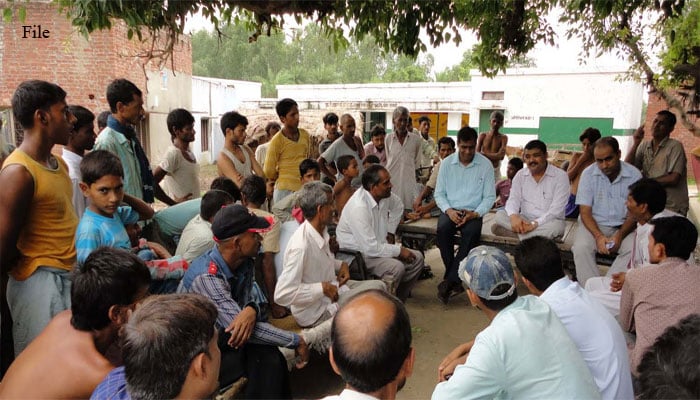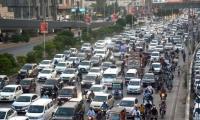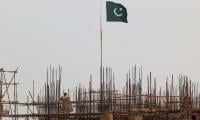Panchayat – Pakistan’s alternate judicial system
The real issue is not the panchayats but the power they are given by the masses. The majority of people prefer to go to village councils to settle issues than to the judiciary, as the ‘judges’ (members of the panchayat) are available and the process of ‘law’ and ‘punishment’ is swift.
Once again the alternate judicial system the panchayat (village council) – an alternate judicial system in the country - has proved how strong it is. Another woman was gang-raped after panchayat’s decree in Gujranwala.
The woman was accused of having illicit relations with a man. The matter was brought in front of the council which decided that she had committed a crime that deserved the worst possible punishment and she was shoved into a room where five men raped her.
Meanwhile, there is no news of what happened to the man she was having an affair with. Was he also punished in the worst possible way, or did he just pay a fine?
This is not the first time that the media has highlighted such ‘punishment’ given by a local council. In 2002, Mukhatran Bibi made headlines after she demanded justice from the courts after she was gang-raped by 13 men on the orders of the village council in 2002.
The council had decided that Mukhatran Bibi be gang-raped as her younger brother had been accused for having illicit relations with a woman from a rival family.
Her case should have been a turning point for the government and efforts taken to make village councils redundant and members on the council punished for taking the law in their hands.
But it is clear that no attempts were made to do anything substantial. And the village councils became even stronger than before. This is evident from that fact that not only do people refer to them but they abide by the decisions given, no matter how inhumane they are. These panchayats function almost as if they are above the law of the land, and sometimes it seems like they are.
Although there is news that the five men involved in the gang-rape have been arrested, but there is no news whether the members of the panchayat were also arrested. These people should be given swift punishments so that those going to them realize that they are part of an illegal ‘judicial’ system and will face the law.
The real issue is not the panchayats but the power they are given by the masses. The majority of people prefer to go to village councils to settle issues than to the judiciary, as the ‘judges’ (members of the panchayat) are available and the process of ‘law’ and ‘punishment’ is swift. And most important is that the financial burden is less. However, the consequences especially for victims like in this case are grave.
Reforms and revision in the judicial system have been delayed for too long and things are just deteriorating. People don’t want to spend their whole life pursuing a case and would want to see timely justice.
This will not be an easy task. Pakistan’s judiciary is facing the serious problem of insufficient number of judges at different levels. According to an estimate in 2018, Pakistan has a total strength of 4,000 judges who are facing a backlog of approximately 1.9 million cases.
The judiciary needs to be reviewed and more judges need to be appointment at all levels, especially at the civil courts, so that the backlog is dealt with.
Citizens need to be confident that the judiciary is working for the greater good of the society, and this can only be achieved if the alternate judicial system is made redundant.
And for this people need to get easy and swift justice from the courts and judges. Otherwise, they will keep seeking justice from the alternative judiciary like panchayats and jirgas.












